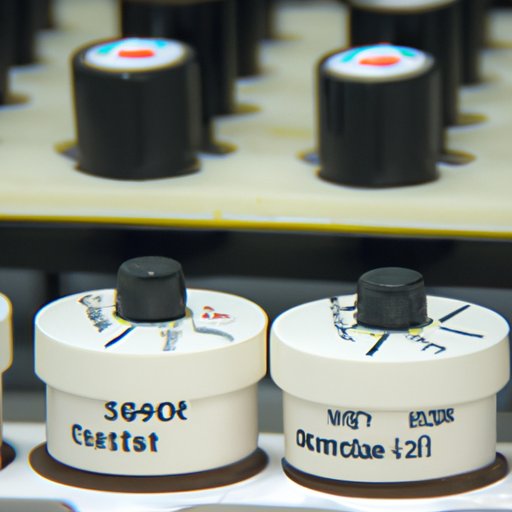Introduction
Controlled variables are important components in scientific experiments and studies. They are used to test a hypothesis by eliminating any other factors that could influence the outcome of the experiment. In this article, we will explore what is the controlled variable in science and examine its purpose and impact on scientific results.

Exploring the Concept of Controlled Variables in Science
A controlled variable is defined as any factor that is kept constant during the course of an experiment or study. This is done to ensure that only one variable is tested at a time. By controlling all other variables, scientists can measure the effects of a single variable on the outcome of their experiment. For example, if a scientist is testing the effect of temperature on plant growth, they would use a control group where the temperature is kept constant and only the experimental group has its temperature changed.
In order to identify and utilize controlled variables in scientific experiments, it is important to understand the role of each variable. When designing an experiment, scientists must consider all potential variables that could affect the outcome. These variables should then be divided into two categories: independent variables and dependent variables. The independent variable is the one that is being tested and is the only variable that is changed throughout the experiment. All other variables, such as temperature, light intensity, or humidity, should remain constant throughout the experiment. These are known as the controlled variables.

Examining the Impact of Controlled Variables on Scientific Results
The purpose of controlling variables in scientific studies is to eliminate any other factors that could influence the outcome of the experiment. By doing so, scientists can accurately measure the effects of the independent variable on the dependent variable. For example, if a scientist is testing the effect of temperature on plant growth, they will want to make sure that the amount of light, soil type, and water are the same for both the control and experimental groups. This ensures that any differences observed in the plant growth are due to the temperature and not any other factors.
Controlling variables also allows scientists to make more accurate observations about their experiments. By keeping all other variables constant, scientists can better isolate the effects of the independent variable and draw more reliable conclusions from their data. As Dr. Jeffrey Drazen, former editor-in-chief of the New England Journal of Medicine, states, “Any experiment that fails to account for all the factors affecting the outcome of an experiment is doomed to failure”. This highlights the importance of controlling variables in scientific experiments.
Learning How to Use Controlled Variables to Make Accurate Observations
In order to accurately identify and utilize controlled variables in scientific experiments, it is important to first identify the necessary variables for the experiment. This includes all factors that could potentially influence the outcome of the experiment, such as temperature, light intensity, humidity, etc. Once these variables have been identified, they should be divided into two categories – independent and controlled variables. The independent variable is the one that is being tested, while the controlled variables are all other variables that should remain constant throughout the experiment.
It is also important to analyze the effects of the controlled variables on the outcome of the experiment. By doing so, scientists can adjust their experiment to ensure all other factors are taken into account and that their results are as accurate as possible. For example, if the scientist finds that the amount of light is influencing the results of their experiment, they can adjust the experiment to ensure the light is kept constant.
Conclusion
Controlled variables play an important role in scientific experiments and research. By controlling all other variables, scientists can accurately measure the effects of a single variable on the outcome of their experiment. This allows them to make more reliable conclusions from their data and ensure that their results are as accurate as possible. By understanding the concept of controlled variables and learning how to identify and utilize them in scientific experiments, scientists can make more informed decisions when designing their experiments.
(Note: Is this article not meeting your expectations? Do you have knowledge or insights to share? Unlock new opportunities and expand your reach by joining our authors team. Click Registration to join us and share your expertise with our readers.)
